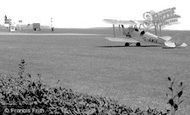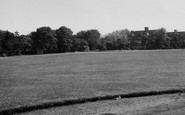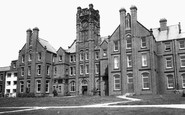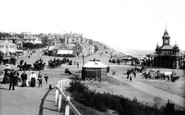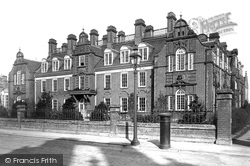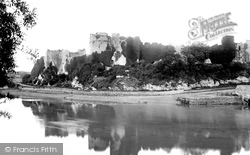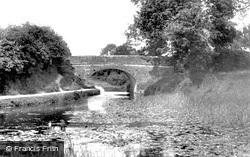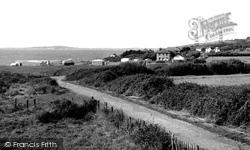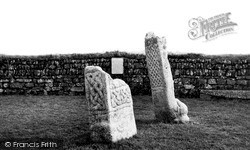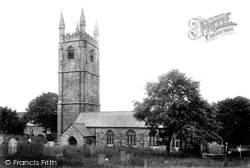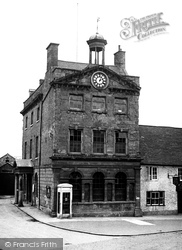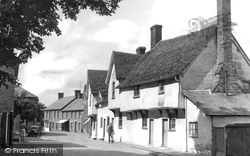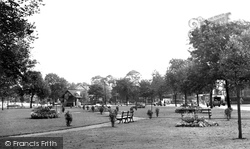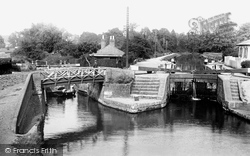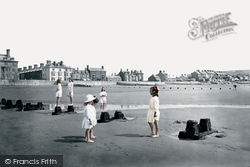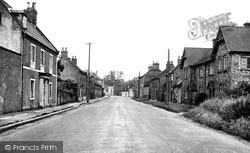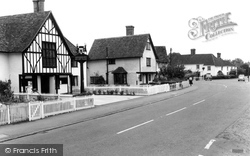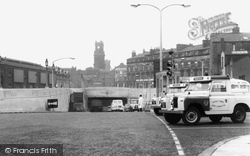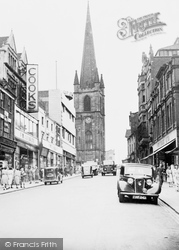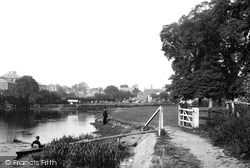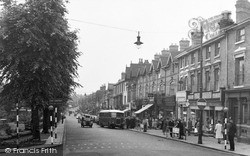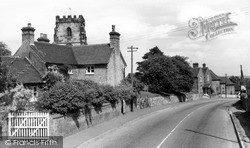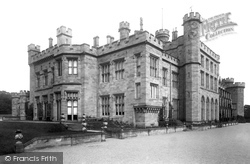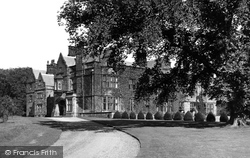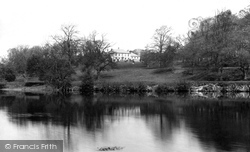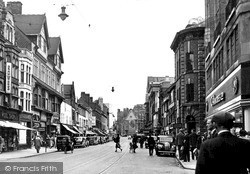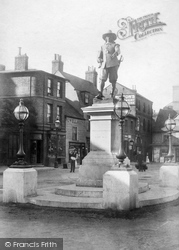Places
6 places found.
Those places high-lighted have photos. All locations may have maps, books and memories.
Photos
9 photos found. Showing results 281 to 9.
Maps
83 maps found.
Books
Sorry, no books were found that related to your search.
Memories
1,642 memories found. Showing results 141 to 150.
Military Parachuting At Watchfield
I was in the RAF at Abingdon on two different postings during 1963/4 and 1967/69 and very often did detachments to the Parachute training school drop zone at Weston on the Green as the aircraft controller. In ...Read more
A memory of Watchfield by
Orange Hill Girls Grammar School
After passing the 11+ at St Johns School, Milton Road, West Hendon, I attended Orange Hill from 1947. I had quite a journey, having to take the trolleybus along the Edgware Road then a walk down the Watling ...Read more
A memory of Burnt Oak by
Short But Happy Memory
Our family lived in Walnut Tree Ground for just about a year in 1963. I went to the village school at Kimpton, having just passed my 11-plus in Manchester. From Kimpton I went to Andover Grammar. Always remember ...Read more
A memory of Fyfield in 1963 by
Lympne Airport In The 50s
That plane was bright blue! As far as I can remember, the pilot was Polish - left over from the war. He used to keep the plane at the airport, and give stunning free acrobatic displays on bright sunny days. For special ...Read more
A memory of Lympne by
Old School
If you head down Lampits Hill and carry on past Giffords Cross road on your right, you then enter Church Road, the next road on your left is Fobbing Road. Opposite this junction is a building called the Old School House, this was the ...Read more
A memory of Corringham in 1960 by
Netherthong In The First World War Part 2
Throughout the course of the First World War many local organizations raised money to send parcels to local soldiers. This was particularly relevant at Christmas and the presents included shirts, ...Read more
A memory of Netherthong by
Gatacre Hall
I was taken to the ruin of the hall which was almost completely overgrown. Shortly afterwards a newspaper article appeared about Lord Gatacre abandoning the property earlier in the century. I recall a tree growing up through an old ...Read more
A memory of Gatacre in 1957 by
Many Happy Hours Spent On The 'crick'
Living in Overstrand from the age of 3 to 16 (1958-71), I spent many happy hours playing football, cricket, throwing homemade boomerangs or gliders, playing kickball (a version of hide and seek but a bit more ...Read more
A memory of Overstrand by
Moorland House School
Does anyone have memories of Moorland House School in Hillside Rd, Heswall? I was a young teacher working there for two years 1968 - 1970. I am surprised that few people remember the school which existed for many years but ...Read more
A memory of Heswall in 1969 by
My Dear Home Town Of Bournemouth
I was born there in 1928, in Boscombe Hospital, Bournemouth, and lived in Bournemouth till 1962. There is no where like Bournemouth, lovely beaches, stores, theatres, the Chines, and Shell Bay. An excursion to ...Read more
A memory of Bournemouth in 1940 by
Captions
436 captions found. Showing results 337 to 360.
Shortly afterwards it was uprooted by Tory undergraduates!
The Castle owes its origins to Roger de Montgomery, the Earl of Shrewsbury, who invaded Dyfed shortly after the Conquest in 1093.
In the event, the main line from Taunton was built as a tub boat canal with a very short life, and an 11-mile stretch from Loudwells to Tiverton was built as a barge canal.
Radar was the word in common parlance, but in fact they were radio beacons, carrying ultra- short wave command signals of the United States Air Force - bounced off the troposphere - between
The short granite cross base with a carved interlace design has inscribed on the other side 'Doniert rogavit pro anima', which translates as 'Doniert ordered this for the good of his soul'.
The Holy Well is a short distance away.
This photograph, taken shortly after the war, shows the Moot Hall in a rather sorry state of repair.
The cottages were threatened with destruction shortly after this photograph was taken, but popular opinion prevailed and they were saved.
Behind the photographer is the very large Broadoak Park, home of the Worsley Golf Club; the short road leading to the clubhouse is called Stableford Avenue.
The left hand lock, behind the footbridge, canalises the River Chess for a short distance from its junction with the River Colne. The central cottage has now gone, but there is a cafe instead.
The ladies' headwear is typical of the early 1930s, and short skirts were in vogue. Motor cruisers are not common on Ormesby Broad, as it is not connected to the river system.
The girls are wearing light short dresses - quite a contrast to their Victorian and Edwardian predecessors, who wore several layers of clothes, even on the beach.
The Town Hall in the East End was established in 1796, shortly after the castle.
This photograph was taken shortly after the winner's sign (left) was installed in the front garden next to the village hall, and it shows how justified the judges were in making the decision.
The houses and shops on the right were pulled down shortly after our photograph was taken.
Dudley High Street is quite short compared to those in neighbouring towns. This view up towards top church takes in about half of it. The prominence of the church tower is emphasised well.
The gaol had a short life: the assizes were finally lost, and it closed in 1868. A recent use as an arts centre has collapsed, and it remains boarded up (2004).
For a very short time afterwards the Wesleyan Church also served as a drop-in centre.
The short battlemented tower adorns an attractive group of 18th- and 19th-century houses at the south-eastern end of the village.
Ironically, shortly after being enlarged and castellated in about 1833, the castle suffered severe structural damage caused by mining subsidence.
Shortly after this view was taken, the present Lord Gisborough, grandson of Richard and Margaret Chaloner, decided to move out of Gisborough Hall, which was then used as an old people's home
Stone came from local quarries within a short distance from here, and even the clay for bricks was found on his land.
The link between London Road and Gallowtree Gate, this short north-south road is visually of the later 19th century.
Shortly before this photograph was taken, the Town Council approved an expenditure of £850 to be paid to Frederick Pomeroy RA for the design and execution of a statue of the Lord Protector
Places (6)
Photos (9)
Memories (1642)
Books (0)
Maps (83)

